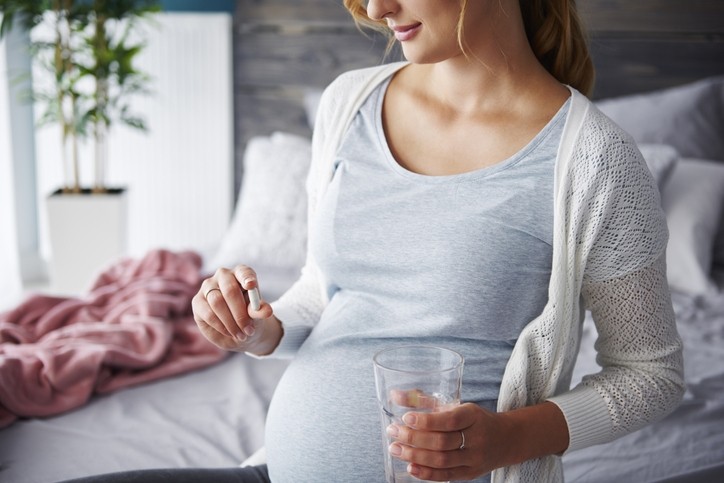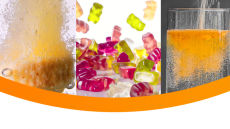Personalized prenatal iron supplementation is crucial, researchers state

The new randomized clinical trial evaluated the effects of prenatal iron supplementation adapted to pregnant women’s initial hemoglobin (Hb) levels on fetal growth parameters in women from northern Spain.
A total of 791 Women were given iron supplements during pregnancy according to their Hb levels at the 12th gestational week, with results finding that high prenatal doses of iron in each group increased the risk of having fetal and birth development both below and above the “optimal” growth.
Supplementation should be adapted to initial Hb levels, to “achieve optimal fetal development, since excessive iron doses appear to adversely influence fetal growth,” the researchers concluded.
“Our results emphasize the importance of early universal screening for maternal iron status, along with personalizing the dose of iron supplementation appropriate to each woman’s needs, i.e., adapted to their initial Hb levels and monitoring iron parameters during pregnancy.”
Pregnancy guidelines
During pregnancy, iron requirements increase considerably to meet the demands of the fetoplacental unit, the increase in maternal blood volume, and to compensate for iron loss at delivery.
Iron deficiency (ID) during pregnancy can often lead to anemia, the global prevalence of which is approximately 36%.
Imbalanced iron status can result in adverse outcomes such as preterm birth, low birth weight, and complications related to iron overload.
Iron supplementation is a common strategy to prevent anemia in pregnant women, however, the optimal dosage and timing of supplementation are debated.
Currently, the WHO recommends daily supplementation with 30–60 mg of elemental Fe/d throughout pregnancy, and in countries where the prevalence of anemia in pregnant women is 40% or more, a daily dose of 60 mg is recommended.
As the authors of the new study explained, these recommendations are based on one review which found that pregnant women supplemented daily with iron are less likely to have a baby with low birth weight.
However, a more recent review found that iron supplementation among pregnant women with a low risk of ID may have adverse effects on birth outcomes, including an increased likelihood of giving birth to a small-for-gestational-age (SGA) baby and having hypertension disorder, as well as a shorter duration of gestation and a higher risk of low-birth-weight (LBW).
Tailored supplementation
The study aimed to be the first to examine the effectiveness of various doses of prenatal iron supplementation based on initial Hb levels in non-anemic women on the fetal growth parameters throughout the entire pregnancy up to delivery.
Participants were recruited by midwives at their primary care centers in the province of Tarragona (Catalonia, Spain) between 2013 and 2017.
They were iron-supplemented during pregnancy according to Hb levels at the 12th gestational week: group one (Hb: 110–130 g/L) received 40 or 80 mg iron daily; group two (Hb > 130 g/L) received 40 or 20 mg iron daily.
Fetal biometric and anthropometric measurements were evaluated at 12, 24, and 36 weeks, and birth.
Growth was measured by ultrasound scan, including measurements of crown–rump length (CRL) and biparietal diameter (BD) in the 1st trimester, and BD, head circumference (HC), abdominal circumference (AC), and femur length (FL) in the 2nd and 3rd trimesters. Estimated fetal weight (EFW) was also calculated.
Birth weight, length, and HC were measured just after birth, and SGA and LGA were defined as a gestational age- and sex-specified birthweight, length, or HC below the 10th percentile and above the 90th percentile.
Results showed that in group one, using 80 mg/d instead of 40 mg/d increased the risk of the infant having a fetal head circumference in the 90th percentile (OR = 2.49, p = 0.015) in the second trimester, and increased the risk of fetal weight (OR = 2.36, p = 0.011) and femur length (OR = 2.50, p = 0.018) placing them in less than the 10th percentile by the third trimester.
For group two, using 40 mg/d instead of 20 mg/d increased the risk of the infant having a fetal head circumference in the 90th percentile (OR = 3.19, p = 0.039) in the third trimester.
A higher risk of delivering an LGA baby (OR = 2.35, p = 0.015) for birthweight was also observed in group one women receiving 80 mg/d.
Results were in line with recent meta-analyses that have found a “U”-shaped risk for maternal iron status during pregnancy, suggesting that both iron deficiency and excess may negatively affect fetal growth and development.
“We found that tailoring iron supplementation to the pregnant woman’s status achieves good results in fetal development,” the authors concluded.
“This would justify prescription of suitable prenatal iron supplementation tailored to the mother’s initial iron stores, aiming to avoid both adverse conditions,” the researchers added. “This is crucial to avoid iron overload, especially in at-risk, iron-replete pregnant women, which would potentially lead to improved fetal growth.”
Journal: Nutrients
"Effect of Prenatal Iron Supplementation Adapted to Hemoglobin Levels in Early Pregnancy on Fetal and Neonatal Growth—ECLIPSES Study."
doi: https://doi.org/10.3390/nu16030437
Authors: Díaz-Torres, S; Díaz-López, A; Arija, V.













